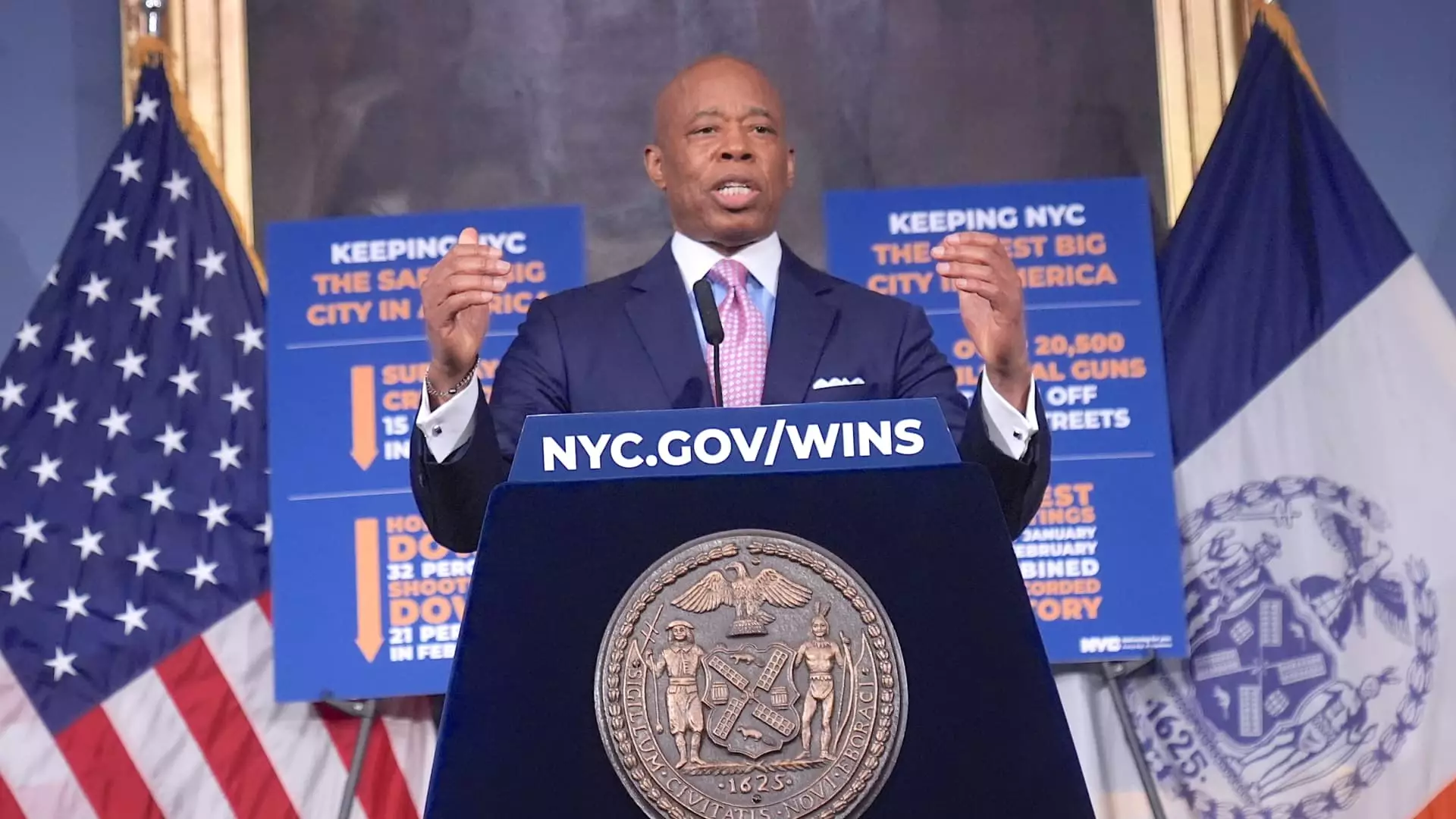In a dramatic turn of events that shocked many and not others, New York City Mayor Eric Adams announced his decision to run for reelection as an independent, effectively bypassing the Democratic primary. This move came on the heels of a federal judge dismissing corruption charges against him, charges that cast a long shadow over his leadership. Adams’ announcement showcased a complex cocktail of confidence, desperation, and a hint of defiance—emphasizing a narrative where he positions himself as a champion for working people and a victim of political machinations.
Adams’ claim of prioritizing the needs of New Yorkers over party allegiance raises significant eyebrows. In an era where party politics often dictate policy and governance, his choice might be seen not merely as a strategic shift but also as a potential survival tactic within the tumultuous landscape of NYC politics. The mayor’s assertion that he has “always put New York’s people before politics” feels dramatic yet almost theatrical in nature. What he fails to acknowledge is that, in choosing to run as an independent, he thrice removes himself from the very systems and structures—namely, the Democratic Party—that aided his initial rise to power.
The Legal Clouds: A False Redemption?
The legal fallout from the earlier indictment and subsequent dismissal of bribery and corruption charges is a key context behind Adams’ new election strategy. The federal judge’s dismissal was framed as a protective measure—a way to liberate Adams from the shadow of accusations that might hinder his leadership. Yet, one must question the legitimacy of this freedom. Is Adams genuinely liberated, or is he merely grasping at straws in a desperate attempt to redefine his narrative and regain lost public trust?
The Justice Department’s involvement complicates matters even further, as they characterized the charges against Adams as obstacles to effective governance. Are we really to believe that a mayor entangled in substantial corruption allegations can effectively lead his diverse metropolitan city without the public’s trust? Pinning the blame on external forces, as Adams seems to do, is a classic maneuver—one that signals to constituents that he is not solely responsible for his predicament, thus shifting the narrative.
The Gambit of Danger: Reaching Beyond Party Lines
Adams’ independent run predicates itself on a new strategy: mobilizing support outside Manhattan and appealing to a broader base of New Yorkers. Yet, this strategy is fraught with contradiction. For one, his admission that he is an “uninhibited” leader without the federal case weighing on him hints at an underlying vulnerability—a fear of public perception that could ultimately undermine his attempts at garnering wider support.
Moreover, the Democratic landscape is not as barren as Adams presents. With nine capable candidates, including the formidable former Governor Andrew Cuomo, Adams faces a tough uphill battle in establishing himself as a serious contender. By forgoing the Democratic primary, he risks alienating a significant portion of his traditional base. The political maneuver appears increasingly like an act of desperation rather than a confident assertion of independent ideology. Liberalism emphasizes collective progress, yet how does one lead that charge while methodically disavowing the party roots that helped him embark on this journey in the first place?
The Fallout: A Troubling Narrative
Adams’ declaration that accusations against him were fundamentally false offers a troubling narrative for a purported leader basing his campaign on transparency and integrity. His public acknowledgment of mistakenly trusting the wrong people displays a potential lack of judgment, further muddying the waters of his leadership capabilities. Surely, voters are left wondering: if he cannot discern trustworthy associates, how can he be entrusted with the future of New York City?
As the campaign unfolds, the complexities of Adams’ independent candidacy will reveal critical questions about the very essence of leadership in a major city. Whether he is seen as a renegade challenger willing to embark on a new path or a politician playing one last card to save face remains to be determined. While many may see this as a bold move, others, including myself, view it as a dangerous gamble that risks the very fabric of accountability that any political system should uphold.

